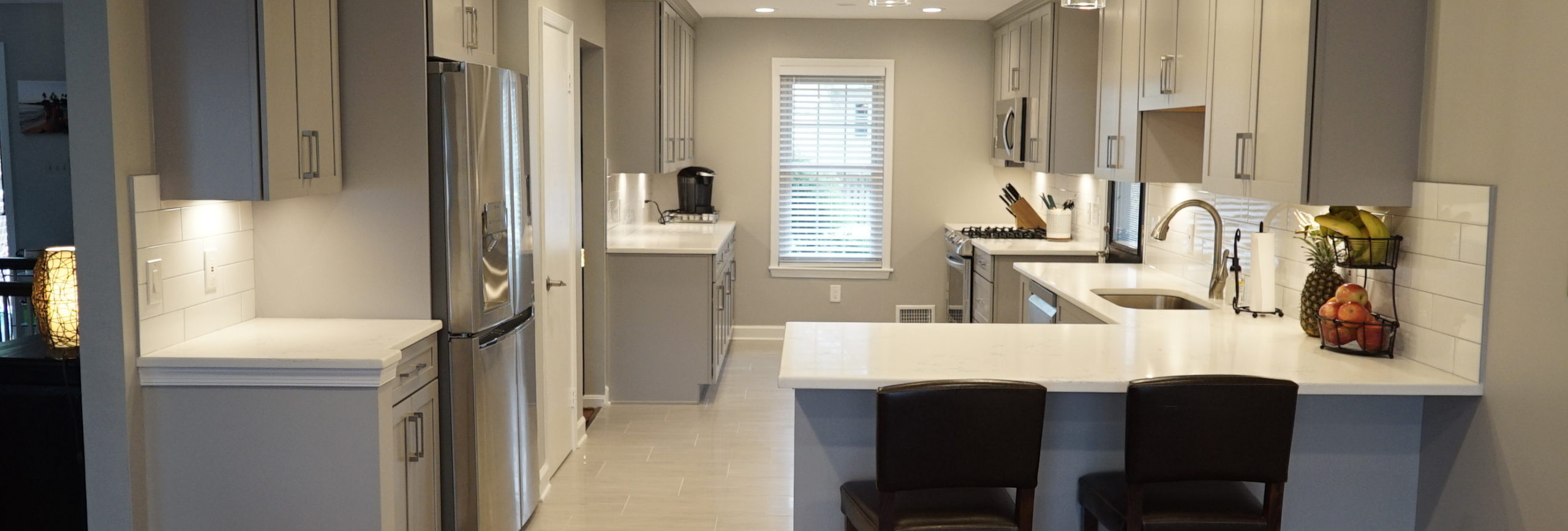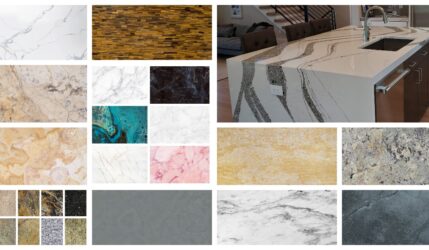Although quartz is one of the most durable materials you can build your countertops with, it is still possible for them to crack and be damaged. And since quartz can be very expensive, you likely want to limit the factors that may damage your beautiful new countertops.
So, what causes quartz countertops to crack?
Although it’s more difficult to damage than other materials, poor installation, extreme temperatures, heavy objects, and sharp edges may all potentially do some harm to quartz countertops.
In this article, we will discuss these potential events in more detail so that you will have a good understanding of which events may inadvertently damage your quartz countertops. With the knowledge of how to prevent these chips and cracks, you will ideally be able to keep your beautiful countertops in great condition for years to come.
Poor installation
If your quartz countertops were not cut and measured correctly, this can cause weight and pressure to be unevenly distributed across the surface of the counter, leading to a higher potential for cracks as your countertops will not be able to bear the weight of heavier objects. Always hire a professional to cut, measure, and install your quartz countertops. It may seem costly, but it will save you a lot of money and headache in the future.
Low-quality quartz.
If you purchase a cheaper, lower-quality quartz, your countertops may be weaker than if you purchase a higher-quality brand. To find out whether your quartz is “high quality,” always search for what it’s made of. Lower-quality countertops will be made with a mixture of quartz and other materials, such as concrete or glass. Make sure you do research on a brand before you purchase it, and remember: if the price tag seems too good to be true, it probably is.
Extreme temperatures.
One of the most common factors in quartz cracking is exposure to extreme heat and cold. In general, you want to keep your countertops away from anything that is below freezing or above boiling points. Never place a bag of ice directly onto your countertops, and always use a hot pad before moving a pot or pan off the stove and onto your counters. Additionally, extensive exposure to direct sunlight may also crack your countertops over time, so consider putting up curtains in your kitchen.
Heavy objects
This one should be a given, but unfortunately, people give their countertops a lot more credit than what they’re due. Heavy appliances may damage quartz countertops, but even sitting and standing on your countertops even briefly can cause them to crack.
Sharp edges. Tossing items with sharp edges—such as knives, keys, or tools—onto your countertops poses a small risk of scratching, chipping, or even cracking your countertops, particularly if you know they haven’t been installed professionally. Save yourself the trouble and just don’t expose your quartz countertops to sudden impacts at all.
How Can I Prevent My Quartz Countertops from Cracking?
To prevent your quartz countertops from cracking, DON’T:
-
- Toss sharp or heavy objects onto the counter’s surface
- Pay for poor-quality materials or anything less than professional installation
- Allow heavy vibrating appliances to have contact with your quartz countertops for extended periods of time (such as a dishwasher)
- Take a pot or pan directly off the stove and place it directly onto the counter (use a hot pad)
- Take frozen items or bags of ice and place them directly onto the counter (use a towel as a buffer)
- Sit or stand on your counter, even for a short period of time
Related Questions
How Can I Fix a Cracked Quartz Countertop?
If the crack is relatively small—say, the size of a quarter—it’s simple to fix with some DIY home remedies. If your countertop breaks soon after installation, always check your warranty; many companies offer a warranty that can last up to ten years.
At What Temperature Does Quartz Crack?
The polymer resin that coats the top of a quartz countertop exists primarily with the intention of increasing the strength and durability of your counters. However, it is typically only heat resistant up to 150 degrees. The quartz itself can often withstand temperatures of up to 300 degrees, but you don’t want to damage the resin coating either, as this can cause burn marks on your counters or even small cracks. Additionally, exposure to anything below freezing (32 degrees Celsius) can also crack quartz countertops.
Conclusion
In summary, although quartz is one of the most durable materials on the market for countertops, it still has its weaknesses. Quartz’s biggest weakness is extreme temperatures, so make sure you’re not putting super hot or cold items in contact with your countertops, and you should be fine. Additionally, your best bet for ensuring your countertops have a long, healthy life is making sure that they are installed professionally from the start and are made from high-quality material. Although this will cost you more upfront, it will save you money on repairs in the long run.
If quartz, marble or granite are on your list for a kitchen remodel or bathroom renovation then Premium Granite is a place to visit. Our countertop store has an amazing showroom filled with visuals and everything your need for your countertop project.
Begin with selecting your desired countertop solution and we will fabricate, deliver, and install your customized quartz or granite countertops. Your Premium Granite will be upgraded instantly with new countertop installation, and you will love the new look and feel of the most important room in the home, the kitchen. Call or visit us for a Free Estimate today!
Premium Granite believes in the importance of clients handpicking stones for their personal projects, which is why we offer showrooms and warehouses located at 4215 Walney Rd Unit L, Chantilly, VA 20151.




